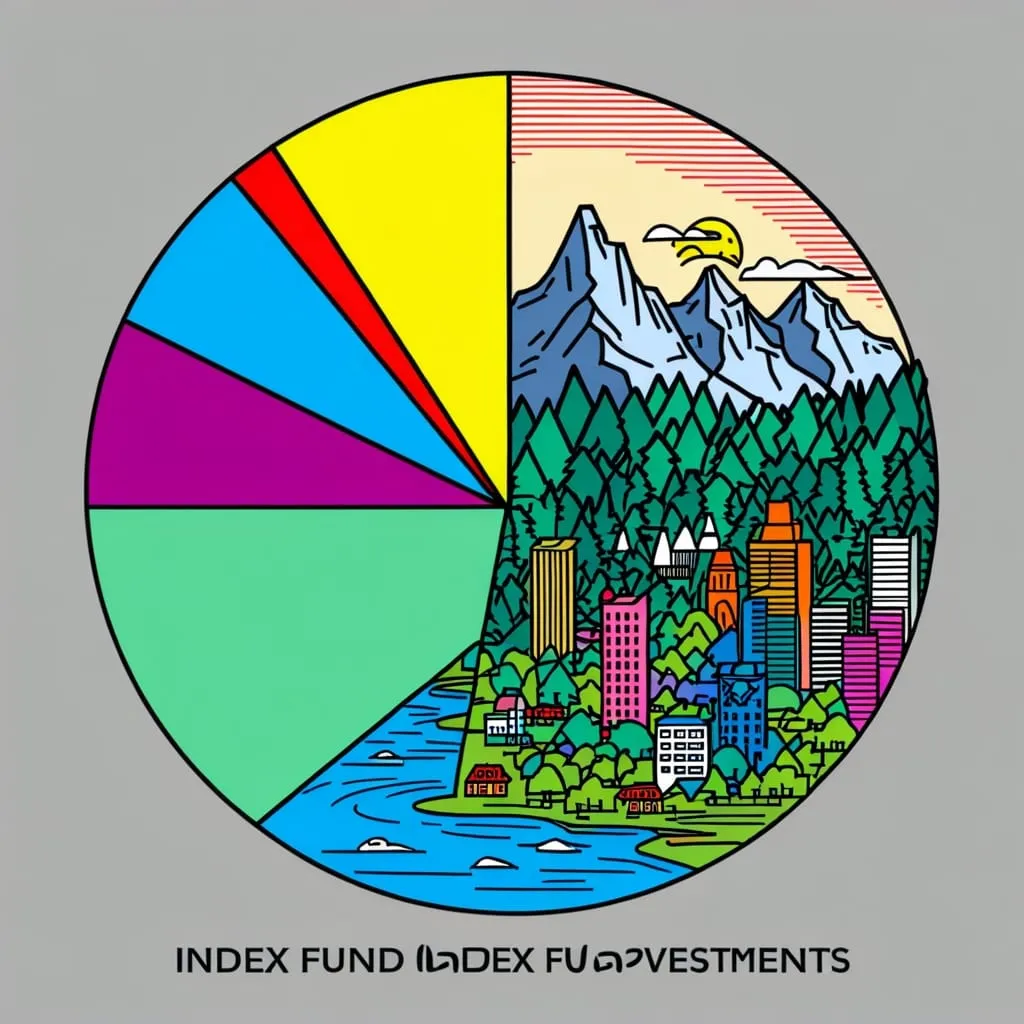Alright, let's dive into the world of index funds and uncover some hidden dangers that might be lurking beneath the surface. You've probably heard all the hype about these investment darlings, but it's time to take off those rose-colored glasses and get real.
So, what's the big deal with index funds anyway? Well, they've become the cool kids on the investment block, with a whopping $5 trillion invested in them. That's a lot of zeros, folks. The appeal is pretty simple – you get to own a slice of the entire market pie instead of trying to pick out the juiciest individual stocks. It's like going to a buffet instead of ordering à la carte.
And let's be honest, this approach has been killing it. Over a 10-year period, more than 80% of actively managed funds couldn't keep up with the S&P 500. That's like racing Usain Bolt and expecting to win – good luck with that.
But here's the thing – index funds aren't some magical, risk-free unicorn investment. They've got their own set of problems, and it's time we talked about them.
First up, let's chat about diversification. Yeah, index funds spread your money across a ton of stocks, which sounds great on paper. But here's the kicker – it doesn't make you bulletproof against market bubbles. Remember the tech bubble of the late '90s? Tech stocks made up nearly a third of the S&P 500. When that bubble went pop, it took the whole index down with it. Ouch.
Then there's the concentration risk. Index funds are often weighted by market cap, which means the big boys get more play. In 2014, just 10 stocks – we're talking Apple, Google, Microsoft, and their pals – made up over 9% of the MSCI World Index. If those giants stumble, your whole fund takes a hit.
And let's not forget about systemic risks. Passive investing means you're along for the ride, come hell or high water. Unlike active managers who can dodge the duds, index funds are stuck with whatever the market serves up. It's like being forced to eat everything on your plate, even the Brussels sprouts.
Now, you might think index funds are as unchanging as your grandma's famous meatloaf recipe. But surprise! They can and do change. Vanguard pulled a switcheroo in 2012, changing the benchmarks for 22 of its index funds. That's like swapping out ingredients in your favorite dish – the end result might taste a bit different.
And don't even get me started on tracking errors and fees. Not all index funds are created equal, my friend. Some are better at mimicking their index than others, and those pesky fees can nibble away at your returns over time. It's like death by a thousand paper cuts.
Oh, and let's talk about sector funds for a hot minute. These aren't your grandpa's diversified index funds. They're laser-focused on specific sectors, which means they're about as diversified as a bowl of Froot Loops. Higher risk, higher potential reward, but also higher potential for a financial faceplant.
Now, have you heard about the "Magnificent Seven"? No, I'm not talking about the old Western movie. These are seven massive companies that have been absolutely crushing it in the market. As of 2023, they made up over 27% of the Vanguard S&P 500 ETF. That's a lot of eggs in one basket, folks. If these titans take a tumble, your index fund could be in for a world of hurt.
So, what's an investor to do? Well, don't panic and sell all your index funds just yet. There are ways to navigate these choppy waters.
One trick is to diversify your index fund holdings. Instead of going all-in on a market-cap weighted S&P 500 fund, mix it up with an equal-weighted version. It's like inviting all your friends to the party, not just the popular kids.
Another strategy is to check out value-based funds. These bad boys focus on stocks that look cheap based on nerdy metrics like the price-earnings ratio. Since the "Magnificent Seven" often come with price tags that would make your eyes water, value funds might give them the cold shoulder. It's a good way to balance out your portfolio.
And let's not forget about asset allocation. This is where you decide how much of your money goes into stocks, bonds, real estate, and other stuff. It's like divvying up your plate at Thanksgiving dinner – you want a little bit of everything, not just seven scoops of mashed potatoes.
Here's the bottom line, folks. Index funds are awesome tools for investors. They're cheap, they're diverse, and they've been kicking butt for years. But they're not perfect. They've got their own set of risks, and it's up to you to keep your eyes peeled.
Understanding these hidden dangers – like concentration risk, systemic risks, tracking errors, and the potential for bubbles – can help you make smarter investment choices. Mix up your index fund holdings, consider some alternative strategies, and keep a close eye on your asset allocation. It's like being a financial chef – you need to know your ingredients and how they work together.
Remember, investing in index funds isn't a "set it and forget it" deal. It's more like tending a garden. You've got to keep an eye on things, pull some weeds now and then, and maybe add some new plants to keep things interesting.
But don't let all this scare you off. With the right approach, index funds can be the backbone of a killer investment portfolio. Just remember to stay on your toes, keep learning, and don't be afraid to ask questions. After all, it's your money we're talking about here.
So there you have it – the good, the bad, and the ugly of index funds. Now go forth and invest wisely, my friends. May the market be ever in your favor!






